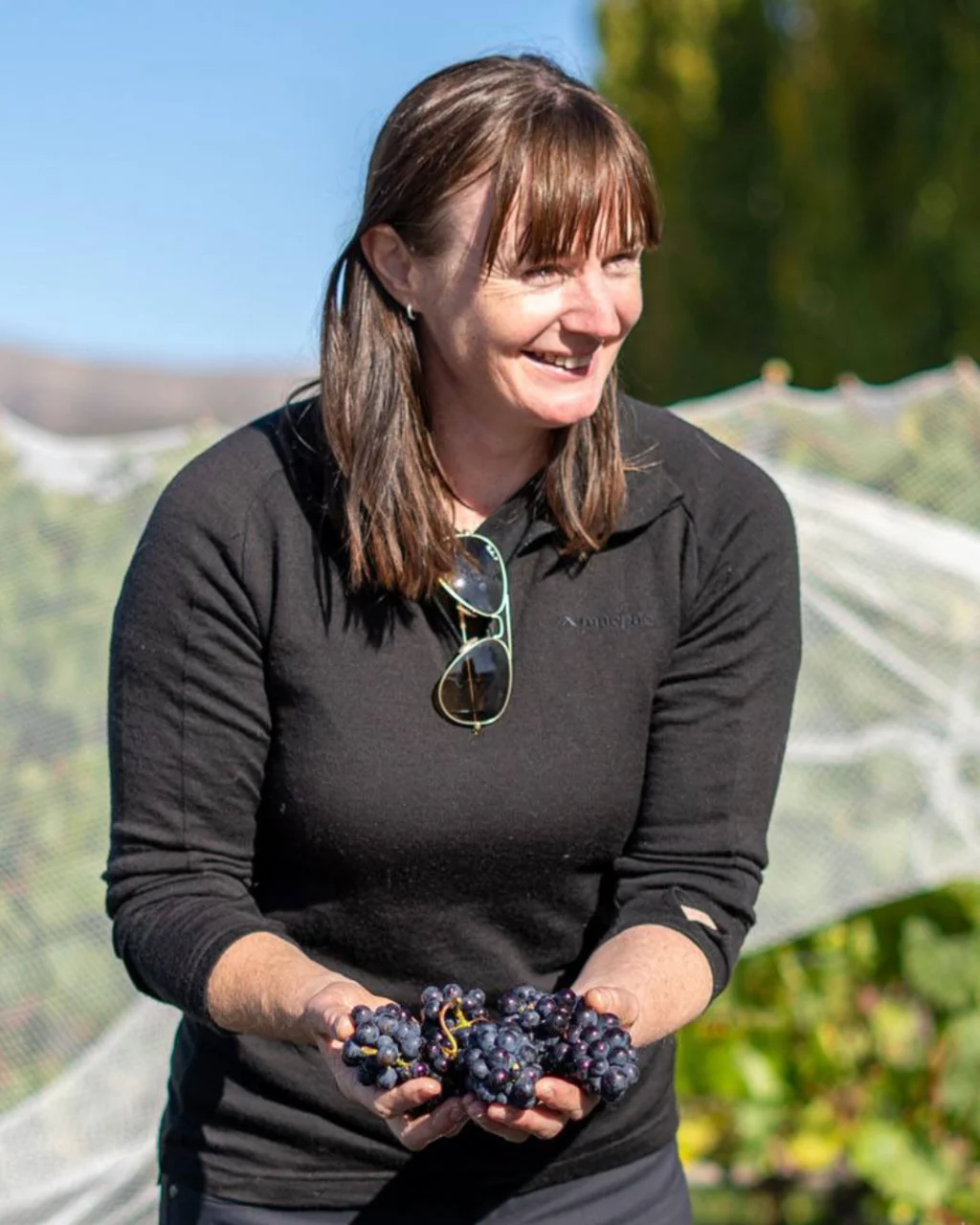For many of us, a good glass of wine is one of life's great pleasures. Far less of us actually know how to go about choosing that wine, however.
If I'm honest, I go back to the same wines time and again because I know I like them, when actually, I'd love to try new varieties and expand my knowledge.
If I'm REALLY honest, when I do go for something new, it's usually based on what kind of animal they have on the label.
Now, I'm not claiming everyone is as uniformed a wine-lover as I am, but I'd venture to guess lots of us could use a few tips.

Luckily, Pip Clarke, head winemaker at Central Otago's Mount Michael Wines, is here to help.
Do awards really matter? Which region will I like best? How do I taste wine without looking silly? Pip has the answers about all things NZ wine for us.
Where do I start when figuring out what kind of wine I like? Knowing your flavour preferences is key to knowing what wine variety you are likely to enjoy! Like savoury or sweet, people love varying types.
Having that base of texture you like is a great starting point. Do you like bubbles in your drink or prefer a flat? Are you more of a fruity person or a tart person? Have you tried red wine, and do you like it over white or vice versa? This can help you eliminate a variety of wines.
From there, if red is your preference, you need to choose if you like a lighter, more delicate wine like Pinot Noir, with its bright red fruits, or heavier reds like Syrah or Cabernet, which have darker red/black fruit characteristics.
Chardonnay can be citrusy with hints of stone fruits, and Gewurztraminer is the one for Turkish Delight lovers. The one thing I must note is the more you drink, the drier your taste buds become when it comes to wine, so over time, things might change.
What year should I be looking at when buying wine and why? A common misconception is the closer the wine is to the current year, the better. In fact, the older the wine, the more earthy and savoury it is, while younger wine is fruitier and brighter – it's all down to personal preference.
Understandably, people naturally gravitate towards the newer bottle.
For reds, a bit of age can be good, but ultimately depends on if you like those aged flavour characteristics.
Do awards actually matter and which ones should I look for? Yes, absolutely. Awards are confirmation that wine experts celebrate the wine, and more are often better.
The types of awards vary. Wine show judging awards are done blind, so based purely on the wine quality, while review awards are tasted with knowledge of what the wine is.
As a tip, finding a reviewer whose tastes match your taste buds (or palate) helps to validate your wine-purchasing choices.
Some well-known New Zealand wine judging awards I recommend looking at are:
New Zealand International Wine Show
WineOrbit
Master Sommelier Cam Douglas
Bob Campbell MW - The Real Review
Raymond Chan
Which NZ regions should I buy wine from and why? Wine is extremely unique to the region, which is determined by soil fertility and how environmental factors in that region nurture the vines and fruit. Another factor that plays a part is the soil makeup (for example schist and gravel, here in Central Otago) and the unique tastes that come through that soil.
New Zealand produces a range of phenomenal wine types. If you already favour a variety, my advice is to try a wine from each of the main wine-making locations within the same price point (Central Otago, Martinborough, Marlborough) and see which one you prefer.
Central Otago - where we are based - produces fabulous Pinot Noir and aromatic white wines because of our unique terroir. I see red cherry, stone fruits, pears, and apples come through as these notes become infused into the roots of the vines imbuing the grapes with distinctive flavours. Martinborough is also an exceptional area for Pinot Noir.
For great Syrah or Cabernet, you want to look at Hawkes Bay, then Marlborough produces the world-famous super varietal Sauvignon Blanc, as well as delicate Pinot Noir.
How should I do a taste test of wine at a restaurant without looking silly? There is a reason for all the showy swirling. Swirling the wine in the glass introduces air into it, helping to release the aromatics and flavours. Most wines benefit from a little bit of air, to help open them up. Give it a try, but I suggest practising with water if you're feeling a bit nervous about it.
Sniffing is not necessarily required, but aroma does play a huge part in taste, and it can be fun to see what you can smell in the wine before drinking.
Another crucial factor is the temperature of the wine varietal. Personal taste does play a part here, but I do not drink the wines too cold as it dulls the flavour and enhances tannins and acid, which could make the wine feel thinner and dryer than it is.
Most whites should be enjoyed somewhere around 6-8 degrees, except for Chardonnay, which is better around 14-16 degrees - same for most reds.
What if I'm still really confused? If in doubt, you can always visit a winery's website to read tasting notes on a particular wine or give them a call, they're usually more than happy to offer advice on their wines. If you're buying from a bottle store, don't hesitate to ask the staff for recommendations. They can provide valuable insights and may suggest wines you hadn't considered.
Above all else, wine is to be enjoyed, so savour the experience, share it with good company, and make the most of every glass!








































































